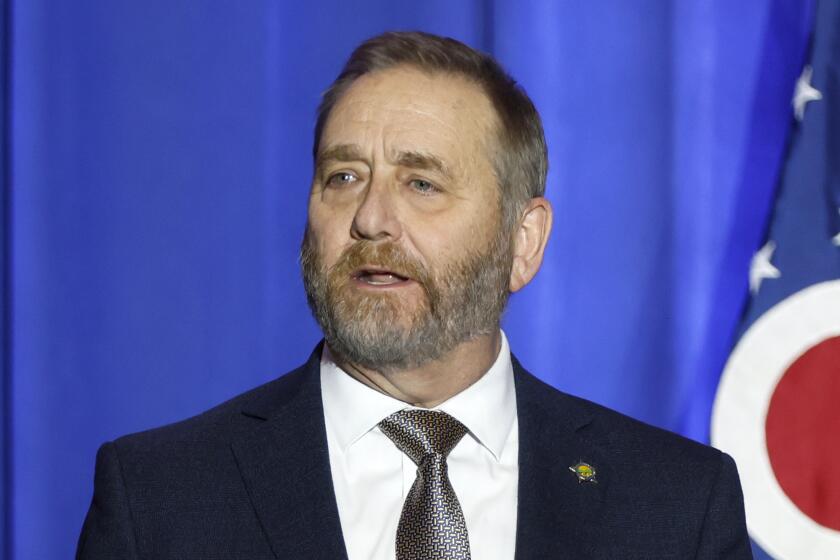6 foreign ports will screen U.S.-bound cargo for weapons
Cargo bound for the United States from six foreign ports -- including one in England owned by Dubai Ports World -- will be screened for nuclear and radiological weapons before being loaded onto ships, federal officials announced Thursday.
Dubai Ports World is the United Arab Emirates company whose purchase of ports in New York and five other U.S. cities earlier this year unleashed a political furor that led to new port security mandates, including this one.
Homeland Security Secretary Michael Chertoff described the $60-million congressionally mandated pilot as a significant step.
“One of the most important priorities at the Department of Homeland Security is protecting America from weapons of mass destruction, and there is no weapon of mass destruction more formidable than a nuclear bomb or a radiological or dirty nuclear device,” he said. “So it becomes critical that those kinds of materials do not make their way to the U.S.”
In response to questions, Chertoff discounted the role of Dubai Ports, saying the Arab company would play no significant role in decision-making.
“The bottom line is this,” he said. “If you want to do security overseas ... you’ve got to work with foreign governments and foreign companies because they own the ports.”
U.S. officials would decide which containers to load onto U.S.-bound ships, he said, while local police would examine containers that set off alarms.
Chertoff said the start-up of the program, which many Democrats hope to expand to ports around the world but critics decry as a waste, called for screening all cargo from Qasim, Pakistan; Puerto Cortes, Honduras; and Southampton, England.
In addition, he said, some cargo would be screened from Port Salalah in Oman, the Port of Singapore, and the Gamman Terminal at Port Busan in Korea.
This time around, Dubai’s involvement raised relatively few eyebrows, even among those who had led the charge against its purchase of U.S. ports.
“I wish they had discussed it with us beforehand,” said U.S. Rep. Peter T. King, R-N.Y., chairman of the House Homeland Security Committee.
“But at this moment, it appears sufficient protections are in place. They won’t have any access to software or to algorithms.”
Democratic Sen. Charles E. Schumer of New York also downplayed Dubai’s role. “We understand they have undergone significant scrutiny to join this program,” he said, “unlike what we experienced in the first episode.”
But even as Schumer called for the program’s expansion, some experts dismissed it as a waste of money.
“Number one, the technology is not that good,” said James Carafano, senior research fellow in homeland security at the Heritage Foundation, a conservative think tank in Washington, D.C. “The data these [radiological detection] machines produce is still very poor.”
More important, Carafano said, “No serious analyst thinks this is a credible threat. If you had a nuclear weapon, the last thing you’d do is let it out of your control. Ships get rerouted, containers get crushed.... So at the end of the day, you’re struggling for a rational justification.”
More to Read
Start your day right
Sign up for Essential California for news, features and recommendations from the L.A. Times and beyond in your inbox six days a week.
You may occasionally receive promotional content from the Los Angeles Times.




